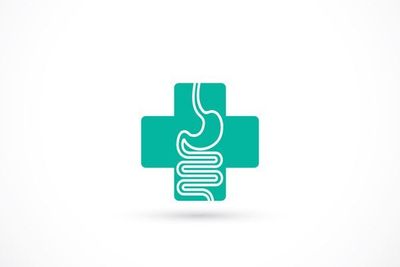Go ahead and blame former President Clinton for calling attention to colon cancer by declaring this month National Colon Cancer Awareness Month. Back in 2000, he knew what he was doing: it's an opportunity to spread colon cancer awareness.
I know … it's not the sexiest topic, but we all need to think about our colons, especially once we hit 50.
That's when it's recommended you start routine screening, unless you're at increased or high risk for colorectal cancer; then, you need to talk to your doctor about starting earlier.
You may be at increased risk if you or a close relative have had polyps or colorectal cancer; you have inflammatory bowel disease or certain genetic syndromes like familial adenomatous polyposis (FAP) or hereditary non-polyposis colorectal cancer (known as Lynch syndrome).
Some important colorectal (aka colon cancer) facts
- Colorectal cancer develops in the colon or rectum (also known as the large intestine)
- It's the third most commonly diagnosed cancer and the third leading cause of cancer death in both men and women in the United States.
- The American Cancer Society estimated that 136,830 people would get diagnosed with colon cancer in 2014 and 50,310 would die from the disease.
What's most important to know: you need to get screened. To me, that's obvious. Colon cancer is one of the most preventable cancers, and screening is a way to reduce your risk. If it's found early, colon cancer is one of the most treatable cancers.
But unfortunately, in 2010, only a little more than half of those aged 50 or older reported having screening consistent with current guidelines, according to the National Health Institute Survey. It's estimated that if everyone 50 or older got screened regularly, up to 60 percent of deaths from colon cancer could be avoided.
Screening is so important because early colorectal cancer usually has no symptoms. If there are symptoms, here's what you should look out for:
- Bleeding from the rectum or blood in the stool
- Abdominal discomfort, such as cramps, gas or pain, that persists
- Change in bowel habits, including diarrhea, constipation or a change in consistency of your stool
- Feeling that your bowel doesn't empty completely
- Losing weight for no apparent reason
- Loss of appetite
- Fatigue
- Dark or black stools
In addition to screening, you can do these things to lower your risk:
- Exercise. A recent review of scientific literature found that the most physically active people have a 25 percent lower risk of colon cancer than the least active people. The American Cancer Society and the CDC recommend at least 150 minutes a week of moderate-intensity activity or 75 minutes of vigorous activity each week.
- Maintain a healthy weight. Being overweight or obese increases your risk for colon cancer; this is especially true for men. The most important risk factor is having that extra weight around your waist. Abdominal obesity is a more important risk factor than is overall obesity.
- Eat a healthy diet. Research is ongoing, but what is known is that a high consumption of red and/or processed meats put you at increased risk. To reduce your risk, increase your intake of dietary fiber, cereal fiber and whole grains. Moderate intake of fruits and veggies can be protective, too. Eat at least 2 1/2 cups each day.
- Get your dairy. There is a protective effect (regardless of milk fat content) with a higher consumption of dairy product, milk and calcium.
- Limit alcohol. It's estimated that people who average between two and four alcoholic drinks a day throughout their lifetime have a 23 percent higher risk of colorectal cancer than those who consume less than one drink a day.
- Quit smoking. Enough said.
When you're ready to discuss screening with your health care provider (and I'm hoping you are), there are many options to explore. Besides a standard (or optical) colonoscopy, there's high-sensitivity fecal occult blood tests, sigmoidoscopy, virtual colonoscopy, double-contrast barium enema and Colorguard, a new test that was approved by the FDA in 2014.
You might also want to read:
Colon Cancer Screening: Don't Delay It
Colon Cancer Rates Rising Among Young American Adults
When You Just Can't Go: Constipation 101


